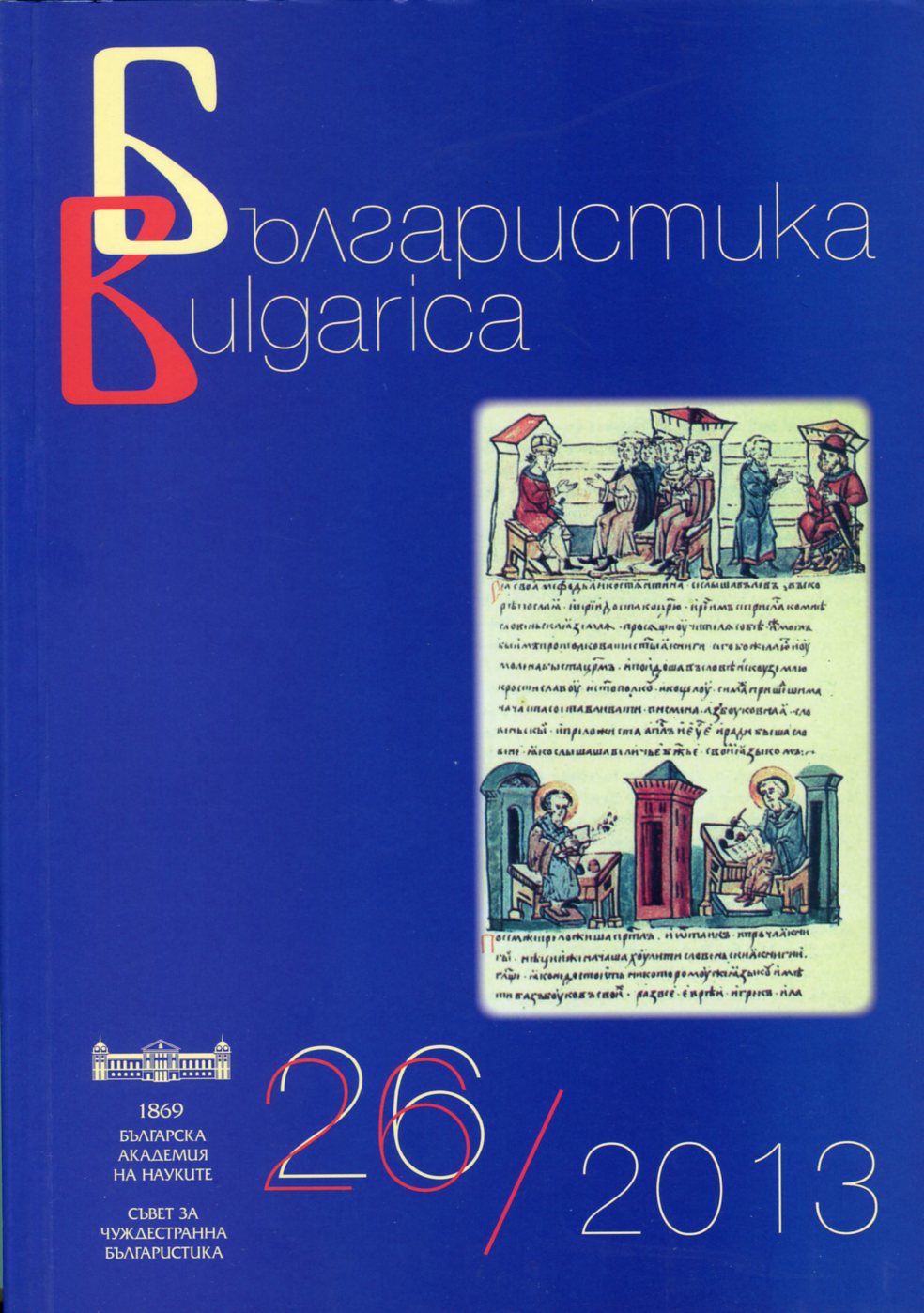
Книги 2012–2013 г.
Selected bibliography in the field of Bulgarian Studies published in the current year.
More...We kindly inform you that, as long as the subject affiliation of our 300.000+ articles is in progress, you might get unsufficient or no results on your third level or second level search. In this case, please broaden your search criteria.

Selected bibliography in the field of Bulgarian Studies published in the current year.
More...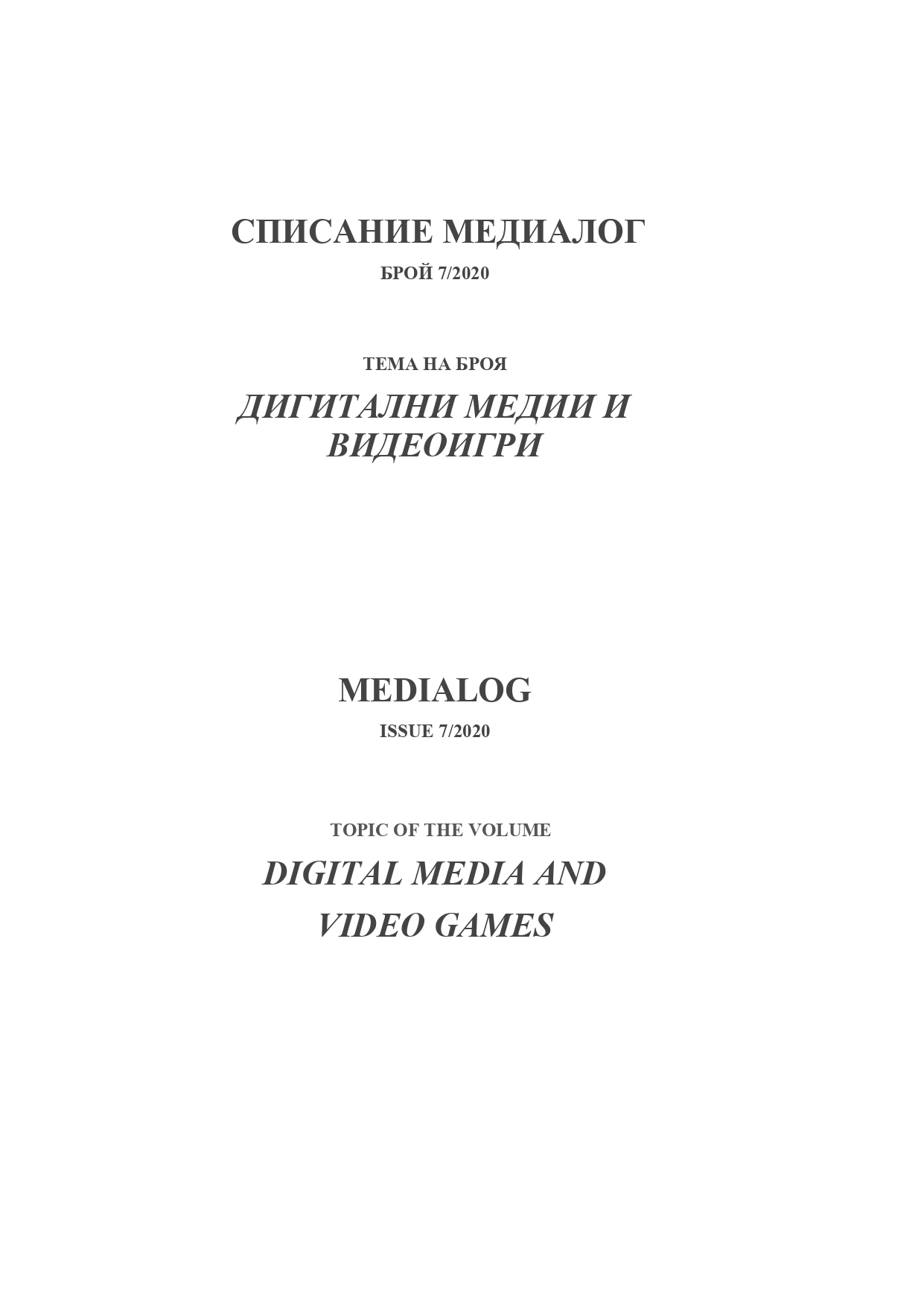
The text examines the web documentary in its relations with other productions, the names used for it and the variants claiming its own importance. An overview of publications has been made, which follow its development and emphasize some of its highly appreciated realizations
More...
The book by Lozanka Peycheva ‘The folk spirit’ in author’s songs from Bulgaria’ (Sofia: “St. Kliment Ohridski” University Press, 2019) is part of research work on the scientific project “The soft power of popular music in media (by examples from Bulgaria and the Balkans”, financed by the Bulgarian national science fund.
More...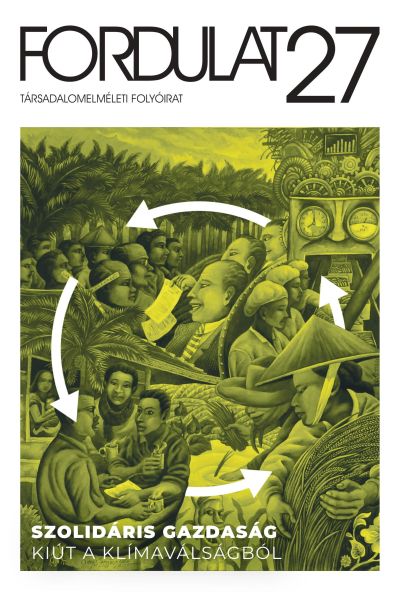
This article focuses on the emergence of the paradigm of solidarity economy and of the commons in the field of professional cultural production. We unfold the possible mutual cooperation of cultural producers and commoning social movements by examining the case studies of the Resonate music streaming co-op and of the Dutch Stad in de Maak housing-initiative. The case of the Resonate exemplifies how cultural producers can reorganize their industry in a cooperative way to hinder capitalist value extraction. Another type of encounter takes place between culture and commons when cultural producers utilize their knowledge and skills in various solidarity economy projects. We demonstrate this possibility through the case of the Rotterdam-based Stad in the Maak, where the artist-architect founders launched a long-term community housing initiative.
More...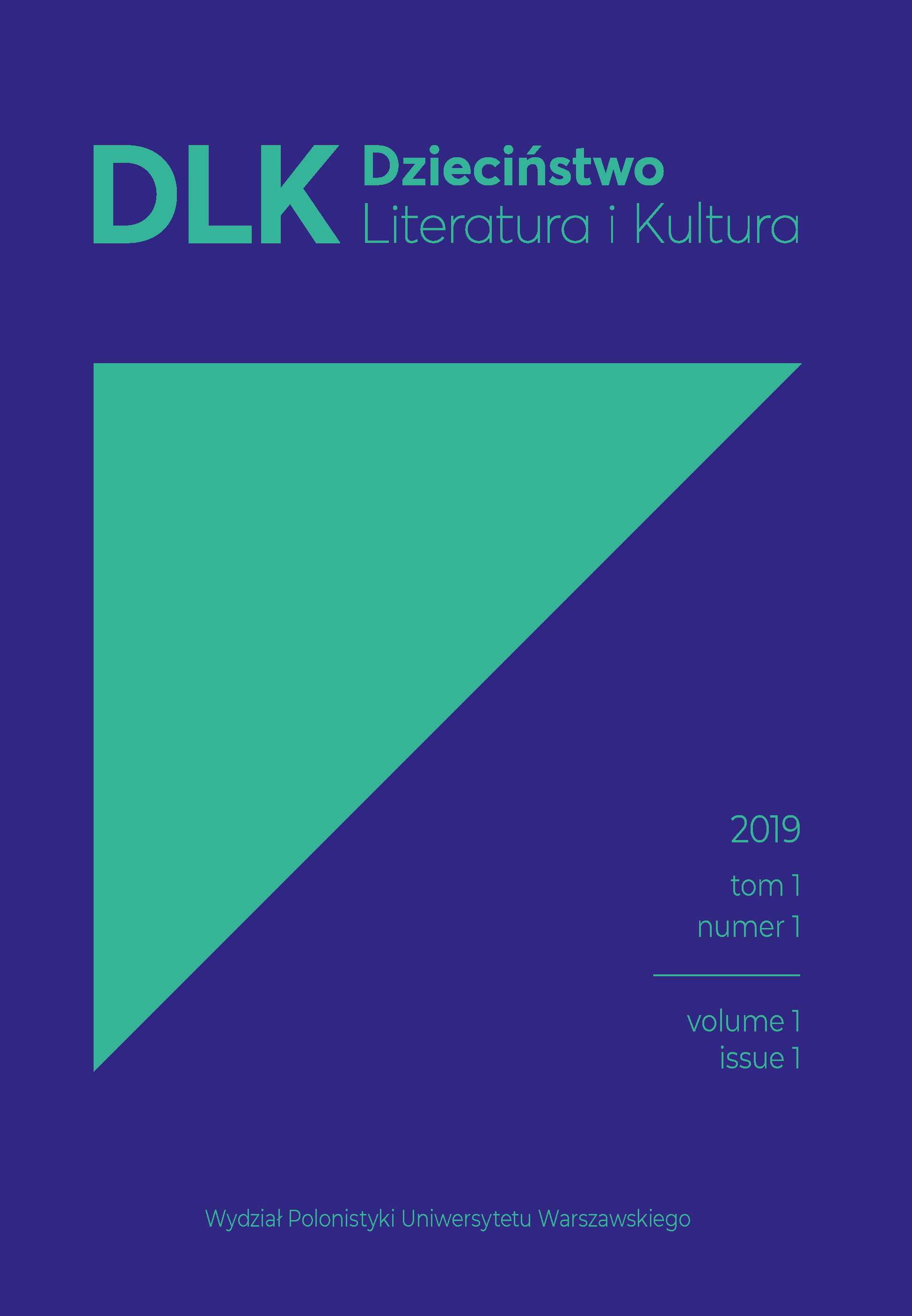
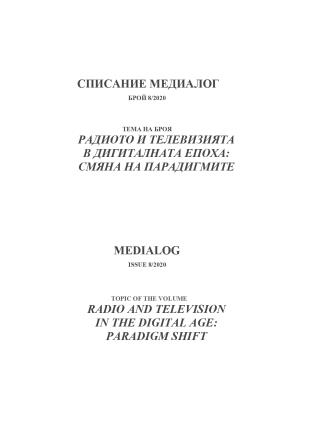
The text focuses on the messages broadcast by the lifestyle and rhetoric of politicians and public leaders during the Covid-19 pandemic. The imposition of a central media trend is being studied - the machismo lifestyle, emphasizing the characteristics of the patriarchal type of masculinity: aggression, threats, austerity, military rhetoric. The focus on this type of patriarchal-masculine lifestyle can be used as a tool to study the consequences of infodemic.
More...
For the last years in Bulgaria there are more and more examples about the capturing of the big media, indecent flirtation between the media, the government and the ruling parties, pressure on editorial content, expulsion of critical journalists in the media periphery. The public space is highly radicalized due to political and economic confrontations. This negative trend is also creating new forms of alternative, opposition journalism, which is even waging a guerrilla war with the powerful political and financial centers. And probably for the first time in Bulgaria we see an opportunity for changing the dominating model – new media platforms seek financial support from the citizens.
More...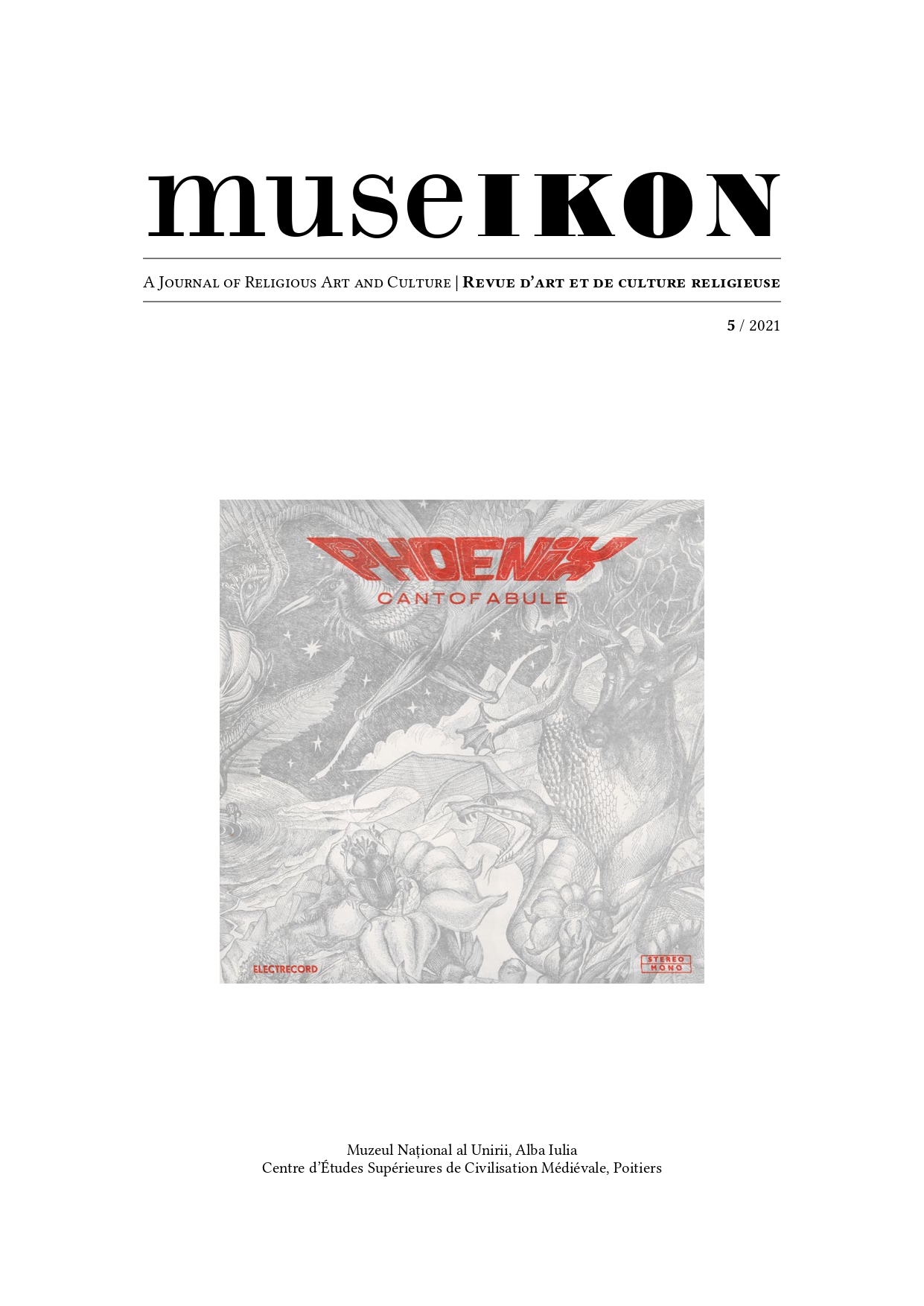
Né en 1947 à Bucarest, dans une famille d’intellectuels del’entre-deux-guerres, Costin Petrescu fait preuve d’un talent musical natif. À l’âge de 12 ans, il fonde avec ses collègues le groupe Pop-Rock The Pioneers, devenu en 1964 – année des JO de Tokyo – Olympic ‘64. Le groupe se fait connaître, il apparaît à la télévision nationale roumaine et à la radio. En1968, Costin Petrescu est étudie à l’Institut d’architecture ‘Ion Mincu’ de Bucarest. En 1971, il devient percussionniste du groupe Phoenix, participant à la renaissance de ce groupe. Il a pris sa retraite de Phoenix pour obtenir son diplôme en1974. Il devient architecte-scénographe aux Studios Buftea, puis architecte dans un institut de bâtiments et travaux publics à Bucarest. Il collabore avec les jazzmen Mircea Tiberian, Marius Popp et Johnny Răducanu, de même qu’aux projets Pop-Rock de Mircea Florian et Nicu Alifantis. Il fait de la musique d’avant-garde dans l’Ensemble Hyperion de Iancu Dumitrescu. Lors d’une tournée européenne de l’Ensemble, il reste à Paris et devient chef de projet dans l’une des agences françaises les plus réputées. Il apparaît rarementen Roumanie après 1992, à l’occasion des anniversaires de Phoenix et des collaborations avec Mircea Florian ou Mircea Baniciu. En 1997, il fonde la société ‘Magic Sign’, une entreprise de longue date, consacrée à l’importation de technologie française dans le bâtiment et l’architecture.
More...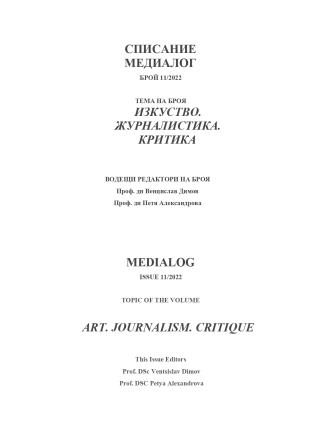
This article examines commercial gramophone records and focuses on their functioning as a medium in the first half of the twentieth century. During the first stage of the development of the shellac gramophone record (from the 1900s to the late 1920s), the gramophone record became the main medium of the music industry, had global distribution and sales, and competed with the leading media and forms of music and art reproduction: cinema and radio. The article focuses on several highlights. It asks how old commercial gramophone records should be studied today: as historical object, sound document, or media? Some methodological problems and directions for future research are pointed out. Examples are given of the history of the Bulgarian music industry and media music in the first half of the twentieth century.
More...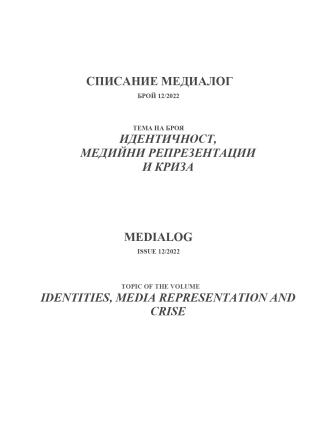
National identity in Bulgarian socialist cinema and especially in the films of the program 1300 years of Bulgaria is understood mainly as a plot – to reflect events from our native history and way of life. Very cleverly, they glided over only those events that, even in their drama, are positive for our self-esteem. But the constructive direction was in the films about migration and guilds as a native modification of the results of industrialization and modernization. In the time of transition, national identity appeared as a problematization – ethnic minorities, ideological, religious, and other repressions came into focus. I define the third stage of identity as confusion. There is no magnetic energy, innovative ideas, deep truth, and sincerity – the screen is 18 percent gray.
More...
The article explores current phenomena - the relationship between war, radio and music. The focus is on the army radio stations of two warring countries: Russia's Radio Zvezda and Ukraine's Army FM. The research examines the programming policy, funding, music content and audience attitudes of the two radio stations. The question is raised how the media and their musical contents are mobilized and "dressed" in a uniform. Observations on the radio stations and the changed music in them related to the wartime and regime in 2022 point to some new features of the radio propaganda mobilizations and the musical "weapons" used in them
More...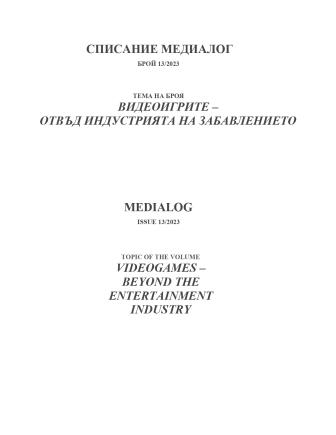
The text examines the narrative of the video game Hellblade: Senua’s Sacrifice through Jean-Noël Thon’s three-part perspectivist model, focusing on its third dimension - the ideological perspective. It states that the elements of the gameplay, usually defined as purely ludic, in fact play a prominent narrative role. The game manages to trick the player without lying to them by relying on classic video game relations such as believing in what is seen and told, the self-identification of the player with the avatar, and uncritically accepting the game’s instructions/information as relating to their own actions, not to those of the avatar. The ideological perspective of the characters combined with the thus created ‘misleading’ gameplay question the game-player relationship, while at the same time succeeding in an original way to distance the player from the avatar and ultimately succeeding to make the player feel towards the game as the character feels within in his own world. Accordingly, if the gameplay has a message, i.e., allows itself to be semanticized independently of and in conflict with the cinematic cuts in the game, it functions narratively and creates a dissonance resulting from two different and parallel forms of storytelling.
More...
The edited volume “Journalism, Values, World. A Jubilee Collection in Honour of Prof. Dr. Maria Neykova” (University Press “St. Kliment Ohridski”, 2022) contains 20 articles united by 5 common themes that contribute to the understanding of a wide range of issues of journalistic practice and to professional debates in the field
More...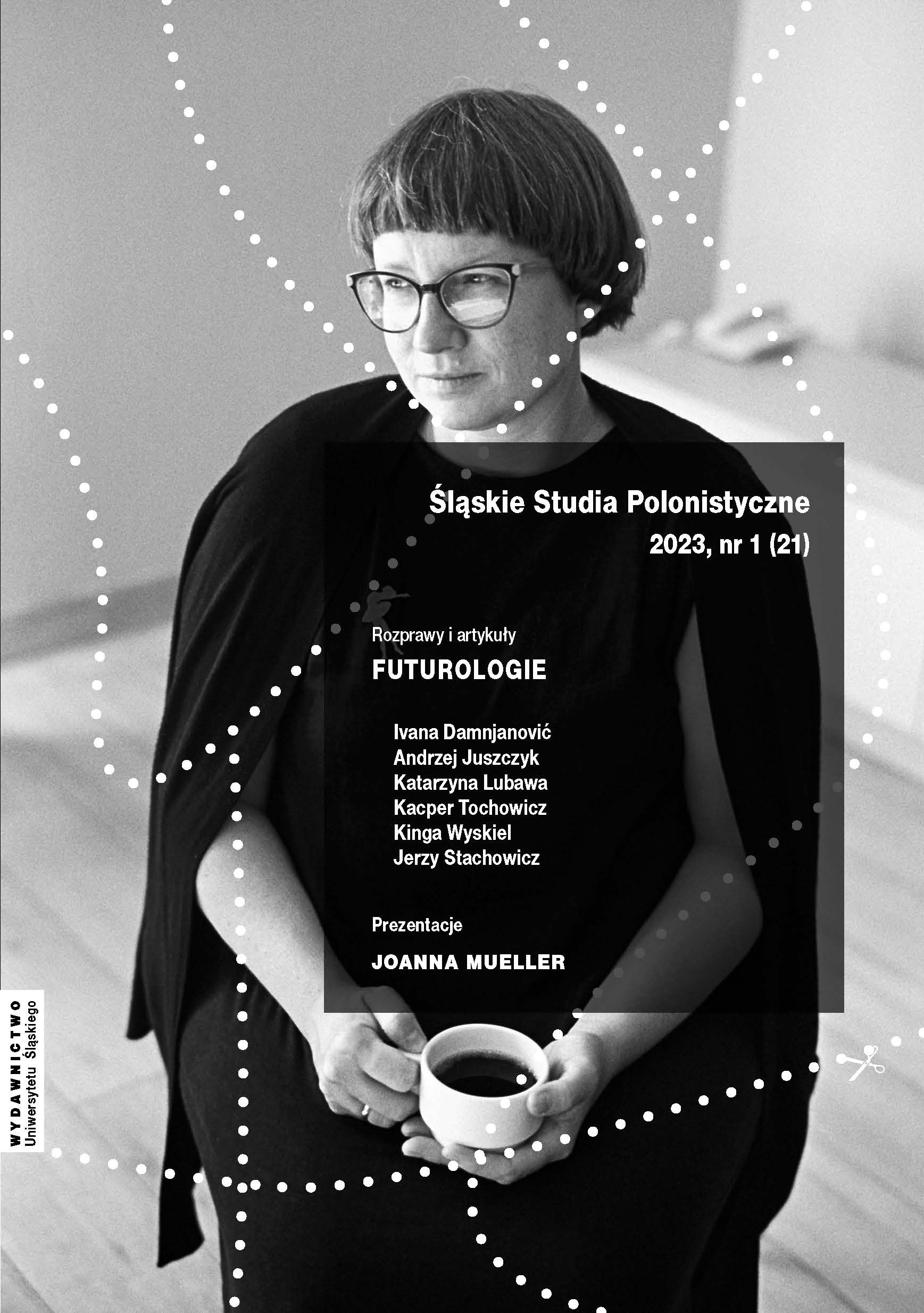
Kinga Wyskiel’s article concerns the issue of gender in science fiction stories by Julia Nidecka. The following stories have been analysed and interpreted: “Wilki na wyspie” [Wolves on the Island], “Taśmy prawdy” [Tapes of Truth], “Kwiaty w bukiecie” [Flowers in a Bouquet] and “Goniący za słońcem” [Chasing the Sun]. Wyskiel considers two dominant strategies for the representation of femininity in these stories and focuses on Nidecka’s images of the woman scientist and the mutant woman present in them. Wyskiel also points out that gender is an a priori category in Nidecka’s future worlds and that, consequently, the construction of those worlds has been based on the gender matrix.
More...
In this article, Jerzy Stachowicz examines selected literary works the represent the science fiction genre of the interwar period. He focuses on pacifist visions of the future in those works and argues that these scientistic, military, and superpower fantasies have an anti-war potential, and that fantasy literature itself can, to some extent, be regarded as a „pacifist practice”.
More...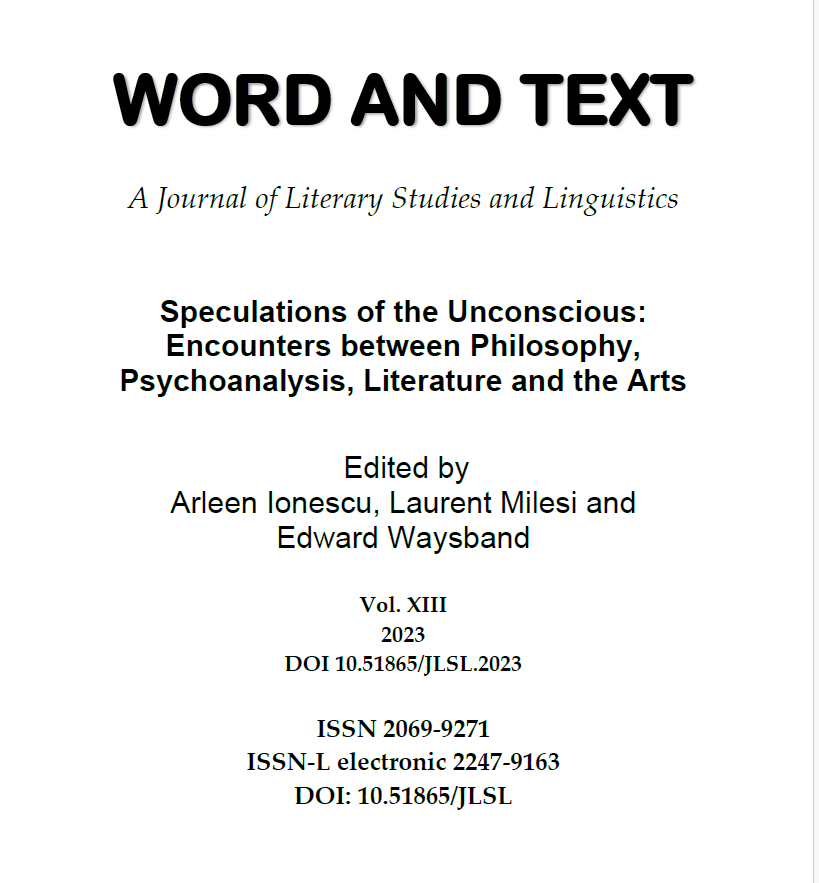
The unconscious (das Unbewusste; etymologically, that which is unknown) is a relatively modern concept that naturalized areas of the unknown previously explored by literature, mythology, and metaphysics. Each in their own domain, Karl Marx, Sigmund Freud and Friedrich Nietzsche, the three ‘masters of suspicion’ (according to Paul Ricoeur), debunked the hubristic claims of modern rational consciousness, exposing its social, existential and psychological grey zones. 1 Inspired by, yet critiquing humanity’s confidence in the power of reason, their acknowledgement of the limits of the Enlightenment is emblematized in Freud’s charting of the conflictual relations between the orderly ego and the unruly id.
More...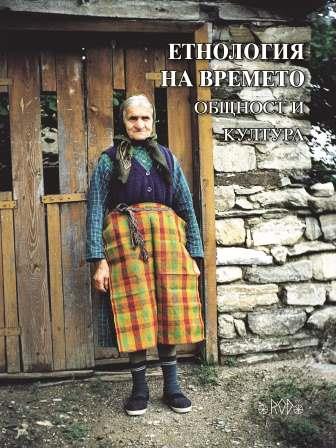
The Bulgarian photographer and researcher, Petar Boev, was appointed as the leader of the first journalistic delegation that visited Vardarska Macedonia from June 8th to June 16th, 1942. The delegation visited dozens of towns, capturing moments of the lives of Bulgarians in Vardarska Macedonia. He took over 100 photographs, which are diligently arranged in an album from Petar Boev’s personal archive. The album was entirely designed by Petar Boev, with beautifully written texts. In addition to the texts, a detailed map of the visited places during the journey was drawn. These photographs, besides being exquisite photographic specimens, hold historical and ethnographic significance. They serve as evidence of the authentic way of life of Bulgarians from the Macedonian folklore region, which remained characteristic until the middle of the 20th century. Petar Boev was a prominent figure active in various spheres of Bulgarian cultural life in the 20th century.
More...
The article explores contemporary tendencies in the art world that incorporate elements from various spiritual practices and customs to reinterpret cultural identity and community. This analysis focuses on the methods by which filmmakers and theatrical creators embed mythological and ritualistic elements into their narrative structures to reach deeper levels of perception and stimulate the audience’s imagination for reconsidering existence in a new context.
More...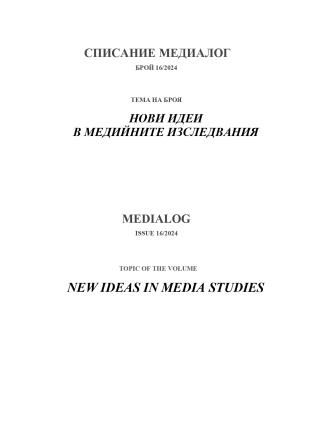
Mobile Journalism is often the subject of debate - is every journalistic assignment outside a studio or newsroom Mobile Journalism and whether the mobility of devices makes journalism mobile? This study presents another angle to the topic of Mobile Journalism, namely focusing on Smartphone Journalism. Why does one particular device stand out among the many technological innovations? The revolution in the field of journalism comes precisely from smartphones due to a specific reason – the liberalization of content distribution channels. These are the first devices in such a wide-scale use, where traditional media systems no longer control the channels for content to reach audiences. The article presents data, collected as part of the International Project: “Mobile Journalism Practice and Education in Central-East European Countries”
More...
The text explores laughter in the Horizont za vas show on the Bulgarian National Radio during two election campaigns for parliament. It analyses the dialogues with listeners and the documents that regulate what is legally acceptable to discuss during a campaign and what is not. The rare instances of on-air humor are not sought by journalists in purpose, and in most cases, are not intended by the audience either. The topics discussed, including the elections, are not approached through humor. The attempts to control communication on both sides are notable. Political satire is not present in the studio, domesticated by the contenders vying for power.
More...